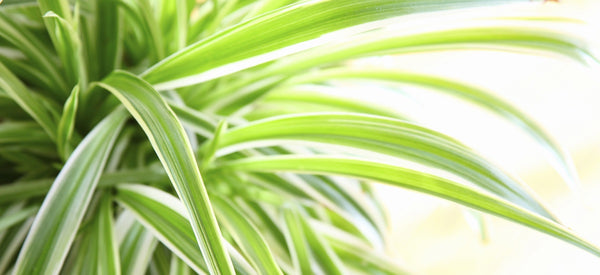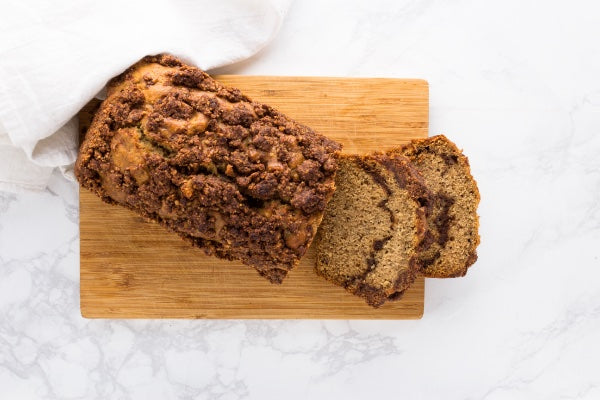


Have you ever gotten your leg tangled in seaweed at the beach? The thought of adding it your salad probably never crossed your mind. But the seaweed family is quite complex, extending far beyond the algae you may have encountered on vacation.
Seaweed is part of the Protista kingdom, and its edible members are known as sea vegetables. Sea vegetables have been an enduring staple ingredient in Asian diets, but are gaining popularity in Western countries—a good thing, since the extensive health benefits of seaweed have quickly earned these veggies “superfood” status.
Environmental toxins and endocrine disruptors are all around us, but sea vegetables come to the rescue by helping draw harmful chemicals and heavy metals out of the body. They also alkalize the blood, which helps balance your body’s pH levels.
Sea vegetables contain a wide variety of essential minerals, including calcium, copper, magnesium, and iron. But perhaps their most important contribution is a healthy dose of iodine, which is crucial for thyroid function and breast health. However, those with thyroid diseases or concerns should speak with a functional medicine doctor before taking sea vegetables to discuss potential contraindications.
In addition to benefiting your inner wellness, mineral-rich sea vegetables in your diet will also improve the appearance and condition of your skin, hair, and nails. More specifically, they may help:
Incorporating sea vegetables into your diet isn’t as complicated as it may seem. And you certainly don’t have to hit the shoreline to harvest them! Well Within Beauty has rounded up seven sea vegetable superstars you can easily find at the grocery store and include in your meals.
WHAT IS IT
NORI is the thin wrap used to make sushi rolls.
HOW TO USE IT
Toast nori or buy it pre-toasted. Use it to wrap vegan sushi rolls filled with cooked rice, raw vegetables, and sliced avocado. Serve with tamari or a homemade dip. If you have a potato chip craving, you can also buy crispy, salty nori snacks for a satisfying nosh.
WHAT IS IT
WAKAME is a diverse culinary ingredient added to soups, most commonly traditional miso soup.
HOW TO USE IT
In macrobiotic cooking, miso soup is often enjoyed in the morning to get the body ready for the day. Try homemade miso soup recipes prepared with wakame and tofu for a nutrient-dense and protein-packed meal. You can also rehydrate wakame by placing it in water to soften. Drain, chop, and add it to salads and grain dishes.
WHAT IS IT
ARAME is sold in thin strips and is used like wakame.
HOW TO USE IT
Swap wakame for arame in miso soup recipes for a slight change in flavor and texture. Rehydrate dried arame and drain well. Sauté if desired. Add whole strips to salads and stir-fries.
WHAT IS IT
HIJIKI is another salad-friendly seaweed.
HOW TO USE IT
Rehydrate hijiki in water, rinse, and drain. In a pan, sauté ingredients like carrots, mushrooms, and tofu. Add the hijiki to the pan to warm through. Toss veggies and hijiki with a soy-based dressing. Intrigued? Do an Internet search for traditional Japanese salad recipes to get complete ingredients and instructions.
WHAT IS IT
AGAR-AGAR can be used as a vegan alternative to gelatin in pudding and custard recipes.
HOW TO USE IT
Seaweed—in dessert? Yes! It’s flavorless and odorless, but combines with liquid to create a gel-like consistency that can be used to make puddings, custards, and gummy candies. Search for agar-agar online to find delicious, naturally sweetened dessert recipes.
WHAT IS IT
KELP NOODLES are a healthy low-carb and gluten-free noodle alternative, made from this nutrient-rich seaweed.
HOW TO USE IT
Look for quality kelp noodle brands that are free from additives. Soak in water to soften the texture, and strain. Add to salads, stir-fries, and broths, or toss with an Asian sauce, like Thai peanut sauce. Alternatively, purchase kelp seasoning and use it to enhance the flavor and mineral content of your meals.
WHAT IS IT
KOMBU is a dried sea vegetable used to increase the digestibility of foods.
HOW TO USE IT
Place a strip of kombu into cooking water when preparing beans, grains, and soups to add minerals and reduce gas. Remove the strip before serving. Alternatively, place kombu in simmering water, cover, and remove when soft. Cut into strips, and toss into salad and vegetable dishes.
As with all ingredients, quality matters. Visit the Environmental Working Group for dried sea vegetable ratings. Experiment with Well Within Beauty’s seven favorite sea vegetables and experience the vast beauty and health benefits of seaweed.
 LIFESTYLE
LIFESTYLE
 RECIPES: VEGAN OTHERS
RECIPES: VEGAN OTHERS
Sign up today to receive weekly Beauty, Nutrition and Lifestyle tips, exclusive offers, and 10% off your first purchase.
Our beauty and wellness brand offers support, services and products to help you become WELL WITHIN your skin, mind and body.
Sign up today and receive your special Friends and Family 20% off your first purchase, valid until May 31, 2017.
Stay Ever Well,
Lynne + Renee
Co-founders
Thank you for signing up today to receive weekly Beauty, Nutrition and Lifestyle tips, exclusive offers and your special Friends and Family 20% off your first purchase, valid until May 31, 2017.
Stay Ever Well,
Lynne + Renee
Sign up today to receive weekly Beauty, Nutrition and Lifestyle tips, exclusive offers, and 10% off your first purchase.
Leave a comment
Comments will be reviewed prior to posting.